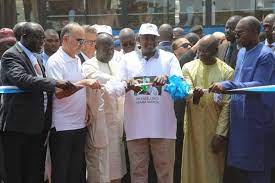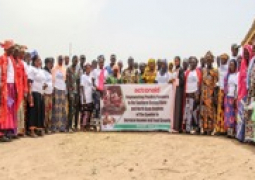
The 70 buses were officially commissioned for immediate deployment on Wednesday to ease transportation around the Greater Banjul Area and beyond.
Barrow said: “The buses have come as a continuation of the project started last year, leading to the commissioning of 38 buses last July. To expand public transport services, 59 of the new buses will be deployed for use as public transport, whilst the remaining eleven 11 will be utilised as school transport.”
The head of state explained that the development was not accidental, saying it was a timely strategic initiative designed to accompany the infrastructural upgrading of our national road network through the improvement of the existing roads and construction of new ones, particularly in areas where the need is greatest.
He stated the deployment of the new buses would complement the current road transport operations of the country. He further expressed delight to observe that “this is one of the largest fleets of buses” ever acquired in the history of public transport in The Gambia.
“Besides easing movement, this scheme has the potential to employ more than 100 Gambians,” the President said. “The quality and standard specifications of these latest buses clearly manifest my government’s resolve to permanently address the public transport challenges confronting us, which include the growing traffic congestion experienced in the Greater Banjul Area. With this in mind, any scheme geared towards improving our public transport services could not come at a better time.”
Barrow emphasised that for any country to improve its transport services in the 21st Century, an effective and efficient public transport system and related facilities must be in place. “Our realisation of this necessity,” he said, “is reflected in the emphasis put in The Gambia’s National Development Plan (NDP) on the critical role of public transport services for the efficient functioning of the national economy.”
He added that meeting the mobility needs of the people amid the rising national population growth rate has been identified as a key challenge in the National Transport Policy 2018-2026.
“Mindful of this, the Government will persistently devote due attention and resources to meeting the increasing demand for transport through efficient improvements that include effective public transport services and traffic management measures.”





